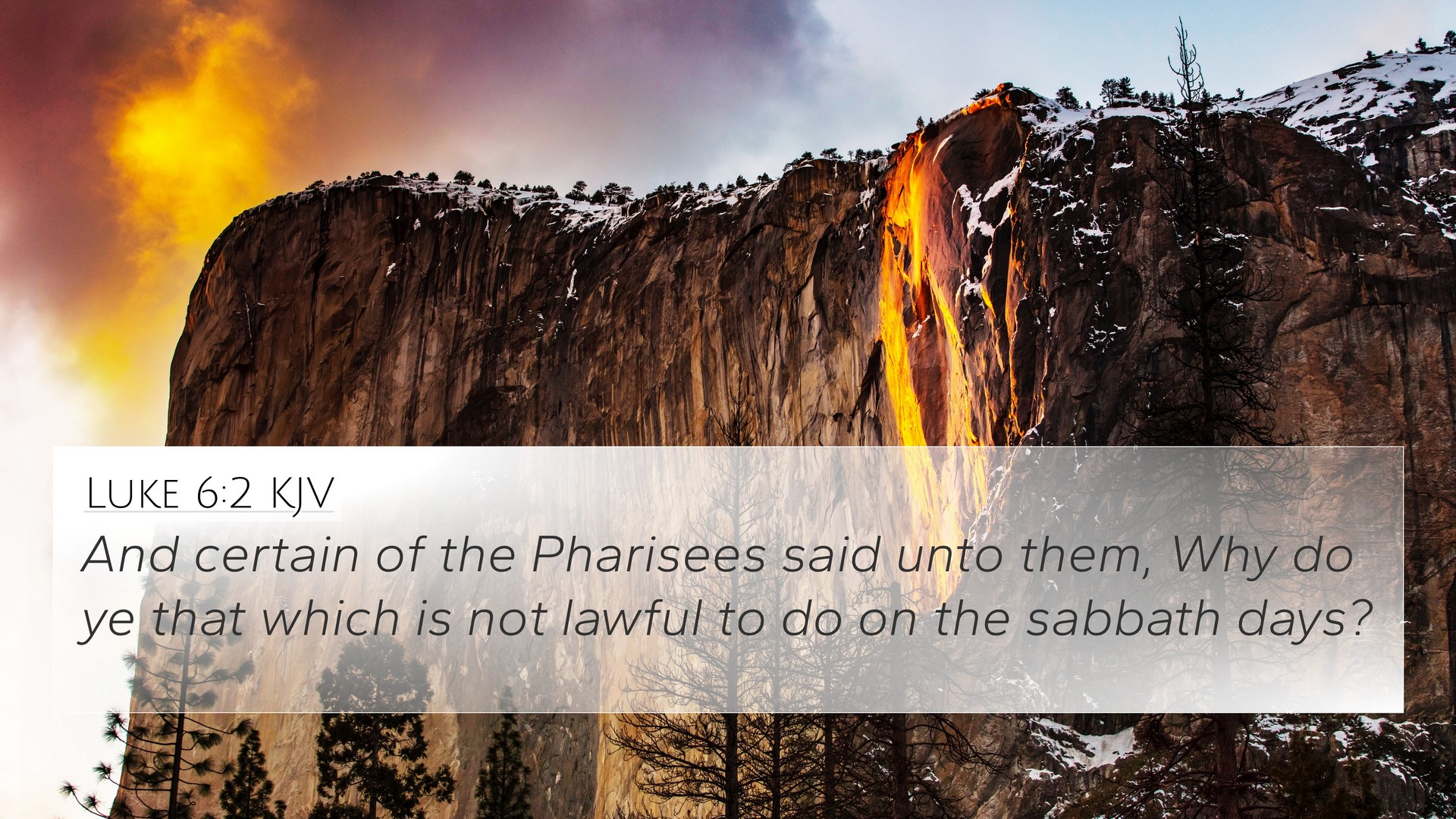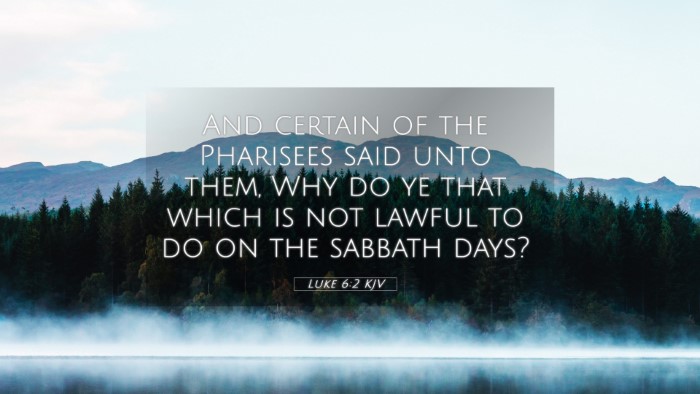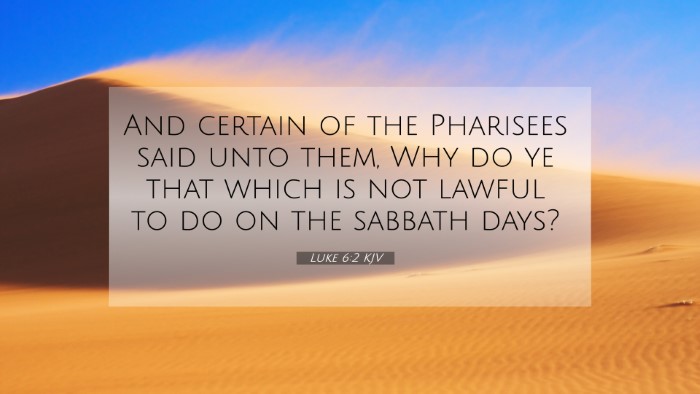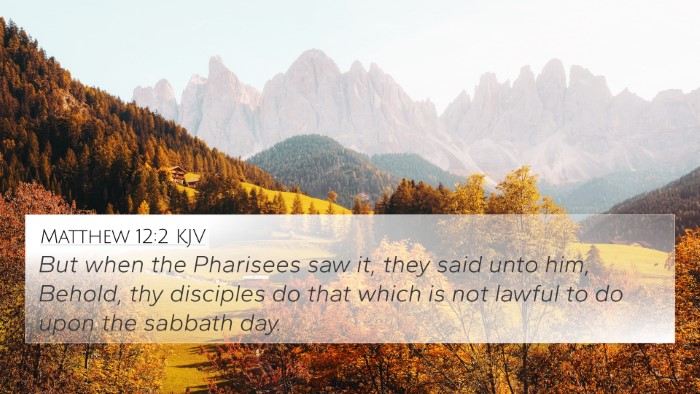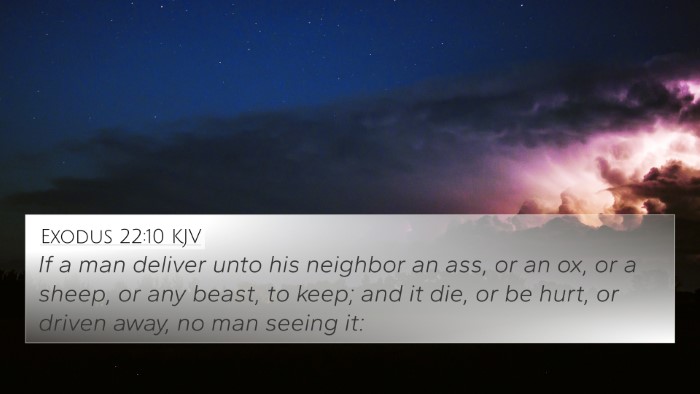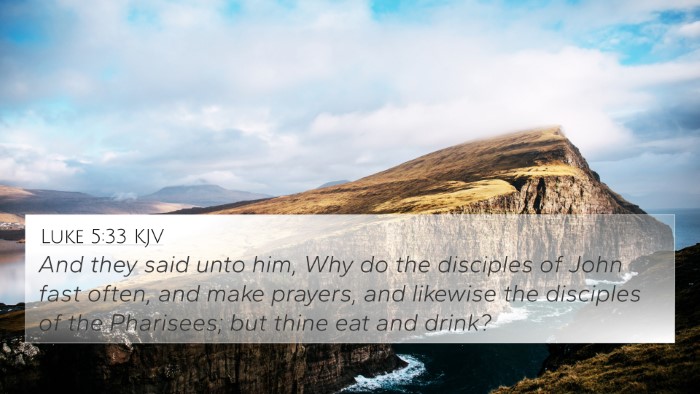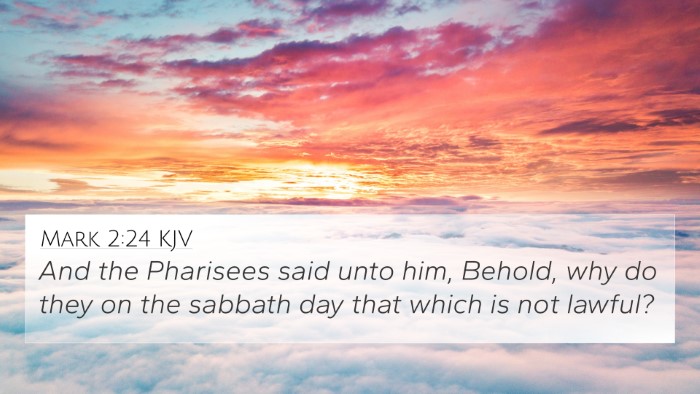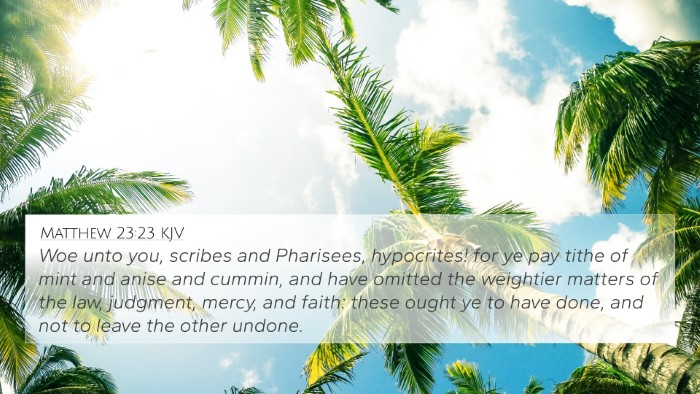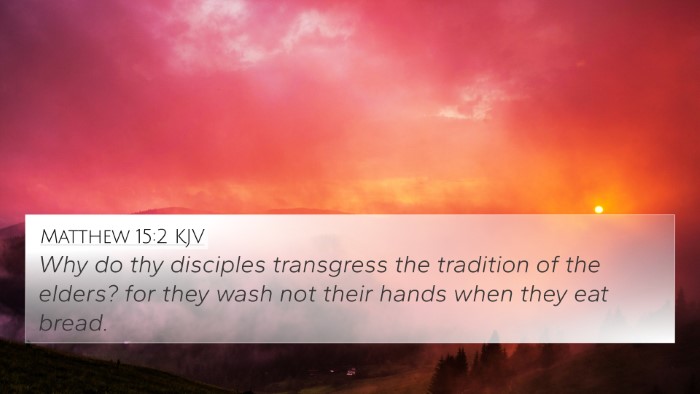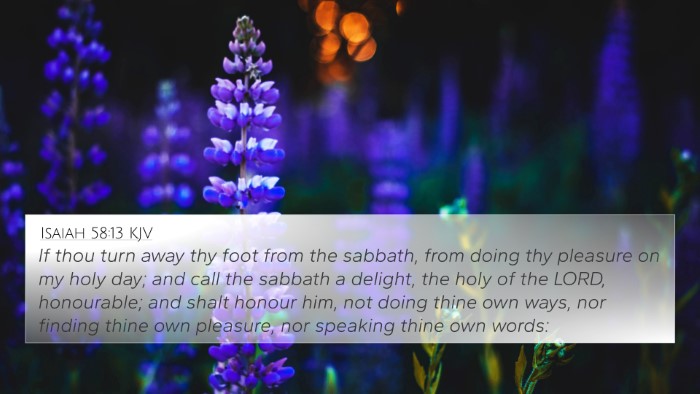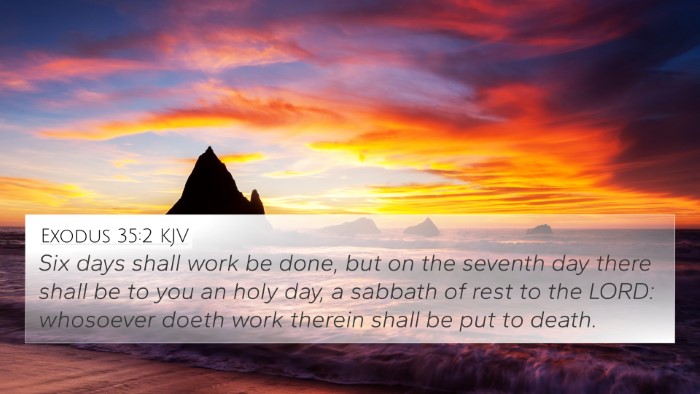Understanding Luke 6:2
Luke 6:2 states: "But some of the Pharisees said, 'Why are you doing what is unlawful on the Sabbath?'"
This verse captures a critical moment of conflict between Jesus and the religious leaders of His time regarding
the observance of the Sabbath. Various public domain commentaries offer valuable insights into the meaning
and implications of this verse.
Context and Background
To fully grasp the meaning of Luke 6:2, it's essential to understand the context. The Pharisees, known for their
strict adherence to the Law, often criticized Jesus and His followers for what they deemed violations of
their interpretations of the Scriptures. In this instance, the disciples were gathering grain on the Sabbath,
leading to accusations of breaking the Law.
Interpretation from Public Domain Commentaries
-
Matthew Henry emphasizes the legalism of the Pharisees, suggesting that their focus
on the letter of the Law blinded them to the spirit behind the Sabbath. He argues that there is a
difference between ceremonial observance and deeper moral intent.
-
Albert Barnes notes that the Pharisees were often quick to judge based on their own strict
interpretations rather than the basic principles of mercy and compassion that the Sabbath was meant to
encapsulate. He points out that Jesus brings attention back to the true purpose of the Sabbath.
-
Adam Clarke provides a historical perspective, explaining that the law concerning the
Sabbath was meant to promote spiritual rest, and that the disciples' actions were a necessity rather
than a frivolity. Clarke argues that the Pharisees missed the heart of the law by emphasizing external
compliance.
Thematic Connections
The conflict presented in Luke 6:2 serves as a pivotal moment that highlights broader themes within
biblical texts, allowing for cross-referencing biblical texts to deepen understanding. Below, we
explore key verses that relate to this encounter:
- Exodus 20:8-11 - The commandment to remember the Sabbath and keep it holy, emphasizing rest.
- Matthew 12:1-8 - An account of Jesus healing on the Sabbath, reinforcing the idea that mercy
is paramount over ritual.
- Mark 2:27 - Jesus states that the Sabbath was made for man, not man for the Sabbath,
showing its intended purpose.
- Isaiah 58:13-14 - A reminder of the true observance of the Sabbath, focusing on social justice
and compassion.
- Luke 13:15-16 - Another example where Jesus confronts the Pharisees about healing a woman on
the Sabbath.
- Romans 14:5-6 - Discusses the different views on holy days among believers and urges acceptance
and unity.
- Colossians 2:16-17 - Paul writes about the freedom from adhering to particular days and
rituals in Christ.
Meaning and Application
The exchange in Luke 6:2 serves not just as a historical account but as an important lesson for believers
today. It invites a reflection on how religious observance can sometimes overshadow the very principles of
love, mercy, and grace that are foundational to faith in Jesus Christ.
The significance of the Sabbath, as highlighted in this verse, calls for a balance between honoring traditions
and embracing the heart of God's commandments. In our studies, exploring bible verse cross-references
allows us to see the interconnectedness of scripture, revealing a more profound message about the nature of
faith and practice.
Concluding Thoughts
Luke 6:2 invites us to question how we apply our understanding of faith in our lives.
As we delve deeper into the connections between various bible verses, we unlock new insights
into God's will and purpose for His people. The act of cross-referencing is not merely an academic exercise
but a spiritual endeavor that enriches our understanding of God's Word.
